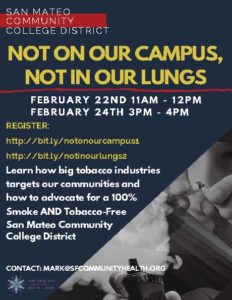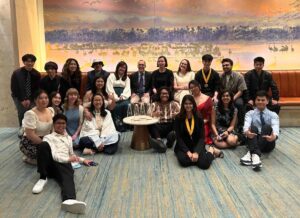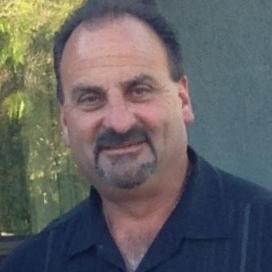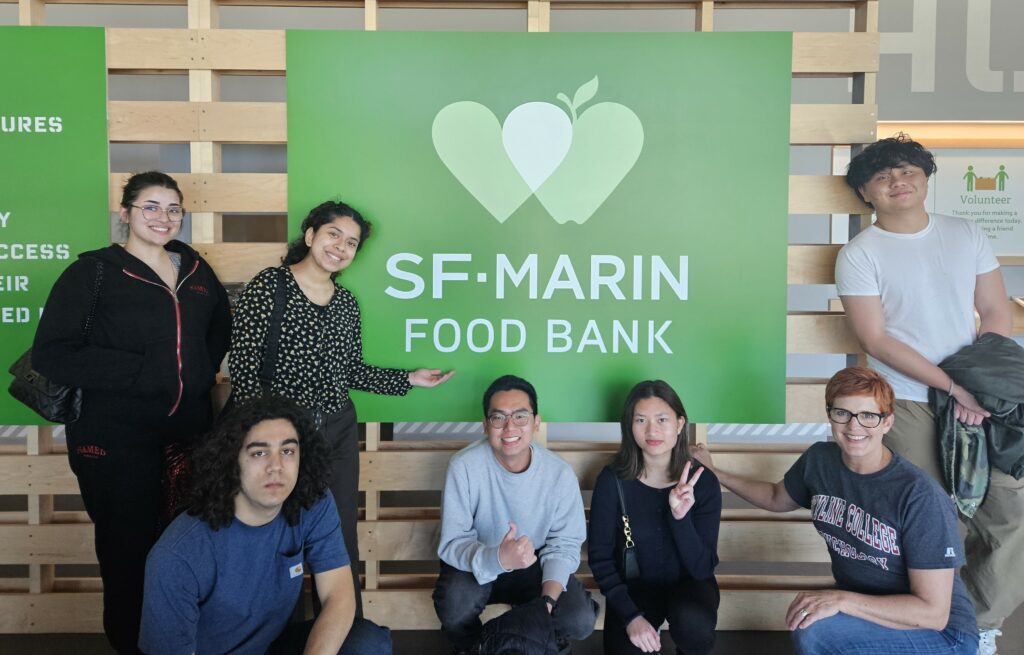 Did you know that the Skyline College smoking policy has not been updated since 2009? According to the annual report published by the California Youth Advocacy Network in June 2020, Skyline College received a D grade because of the existing nine designated smoking areas on campus. Our two sister Colleges received a C grade for still allowing smoking in parking lots. While the UC and CSU systems have gone completely tobacco-free during the last decade, our District is one of the remaining Community College Districts that still allows smoking.
Did you know that the Skyline College smoking policy has not been updated since 2009? According to the annual report published by the California Youth Advocacy Network in June 2020, Skyline College received a D grade because of the existing nine designated smoking areas on campus. Our two sister Colleges received a C grade for still allowing smoking in parking lots. While the UC and CSU systems have gone completely tobacco-free during the last decade, our District is one of the remaining Community College Districts that still allows smoking.
The good news is, students are putting in effort for us to come back to a healthier, clear-air campus after the pandemic! Only Fog @ Skyline is a grant-funded project that advocates for a new policy that makes the District tobacco- and smoke-free. The project lead, Sociology and Social Justice Studies faculty, Rika Yonemura-Fabian and community partners, Mariah Santiago, Mark Heringer (a Skyline College alumni), and Xochitlquetzal Davila from San Francisco Community Health Center with student leads, Brandon Wong (Social Justice Studies major) and Frida Arguello (Middle College/ Sociology major) have been engaging the District and College leadership for the last two semesters to advance a policy for a healthier, and more equitable campus.
Only Fog @ Skyline is not anti-smoker; we are anti-Big Tobacco. Big Tobacco has historically targeted marginalized communities, such as people of color, low-income, and LGBTQ+ communities which has resulted long-lasting, negative health disparities. Along with the efforts to implement policies, the project has been organizing community educational events to raise the students’ and employees’ awareness that tobacco is a social justice and health equity issue, not only a personal health issue. Low-income neighborhoods have more tobacco retailers visible and accessible to their residents, which increases the chance of low-income youths to be exposed to the products. Every year, 30,000 LGBTQ+ people die due to tobacco-related diseases, thanks to tobacco ads preying on queer communities through Subcultural Urban Marketing. Menthol tobacco products that have been targeting African American Communities for decades were only recently banned in January 2021– many years after other flavors (bubble gum, mango among many others) were banned. The health inequity consequence of tobacco on marginalized communities is clear. Our question is, how do we face this problem as a College Community if we call ourselves a social justice institution?
According to the public opinion poll Only Fog collected in August 2019, about 10% of students use a tobacco product. Only Fog believes that banning tobacco should not result in punishing smokers who are victims of targeted marketing for profits. Addiction is not a crime (in fact, project leads are former smokers themselves). The project advocates for active quitting resources that are free and easily available to smoker students and employees, in addition to advancing tobacco-free policies, in order to roll out a new policy in an equitable way.
Professor Yonemura-Fabian was awarded a tobacco control grant from the Truth Initiative, a tobacco control organization based in Washington D.C., in July 2020. With the generous support from Dr. Cheryl Johnson and Martin Marquez from the Equity Division, Michelle Batista from Student Wellness Services, and Susan Shor and Emily Risk, staff from Student Health Center the project, the team has thus far organized a campus-wide event, Great American Smokeout in November 2020. The team has been working with District and College administrations around the smoking policy language, particularly with the District Participatory Governance Council, Chancellor Mike Claire, Skyline College Equity Committee (SEEED), Skyline College President, Canada College Cabinet, and College of San Mateo Cabinet.
Informing students, faculty and staff about this new initiative is important to us and we can give class presentations and share any data we have collected! If interested, please let Rika (fabianr@smccd.edu) know. Finally, check out our next event on smoking and health inequity on February 22nd and 24th.
Article by Rika Yonemura-Fabian






